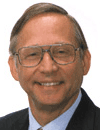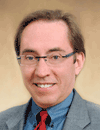Daniel Chiu
A. Bruce Montgomery Professor of Chemistry, University of WashingtonDaniel T. Chiu is currently the A. Bruce Montgomery Professor Chemistry, Endowed Professor of Analytical Chemistry, and Professor of Bioengineering at the University of Washington. He is a member of the University of Washington’s Center for Nanotechnology, Neurobiology and Behavior Program, and the Cancer Consortium of the Fred Hutchinson Cancer Research Center. He has authored more than 180 publications and is the inventor on over 40 issued patents. Dr. Chiu obtained a B.A. in neurobiology and a B.S. in chemistry at the University of California, Berkeley in 1993, and a Ph.D. in chemistry from Stanford University in 1998.
|  | | | Richard Mathies
Professor, University of California BerkeleyRichard A. Mathies received his B. S. Degree in Chemistry in 1968 at the University of Washington working with Martin Gouterman. He earned the M. S. Degree in 1970 and the Ph. D. in 1973 in Physical Chemistry at Cornell University from Andreas Albrecht. Following two years of postdoctoral study as a Helen Hay Whitney Postdoctoral Fellow at Yale University with Lubert Stryer, he moved to the Chemistry Department at the University of California at Berkeley in 1976 where he is G. N. Lewis Professor of Chemistry and Dean of the College of Chemistry. Mathies' biophysical research is focused on the use of resonance Raman and time resolved optical spectroscopy to elucidate the structure and reaction dynamics of energy and information transducing photoactive proteins. His extensive work on the photochemistry of the visual pigment rhodopsin has established the structure of the primary photoproduct using time-resolved vibrational spectroscopy, demonstrated that the primary cis-to-trans photoisomerization in vision is complete in only 200 fs, and analyzed the nonstationary state or wavepacket evolution that defines the excited state isomerization mechanism. His recent development of femtosecond stimulated Raman spectroscopy provides a revolutionary new way to study the structural dynamics of photochemical and photophysical processes with complete high resolution Raman vibrational spectra and <50 fs time resolution. Mathies' work in the area of biotechnology and the Human Genome Project led to the development of new high-speed, high-throughput DNA analysis technologies such as capillary array electrophoresis and energy transfer (ET) fluorescent dye labels for DNA sequencing and analysis. In particular, his development of ET fluorescent labels was a critical contribution to the early completion of the Human Genome sequence. He also pioneered the development of microfabricated capillary electrophoresis devices and microfabricated integrated sample preparation and detection methods for lab-on-a-chip analysis systems that are being applied to DNA sequencing, diagnostics, forensics, pathogen detection and space exploration. Mathies is author of more than 430 publications and 40 patents on biophysical chemistry, photochemistry, photobiology, bioanalytical chemistry and genome analysis technology. He has also been active in consulting and working with biotechnology companies including Affymax, Affymetrix, Molecular Dynamics, US Biochemical, Amersham-Pharmacia, Bio-Rad, Singulex, IntegenX and C8-Medisensors among others. |  | | | Alan Nelson
Professor, Arizona State University Dr. Alan Nelson is the Founder, Chairman and CEO of VisionGate, Inc., where he and his team have developed the breakthrough Cell-CT for the true 3D analysis of cells. Dr. Nelson, prior Executive Director of the Biodesign Institute at Arizona State University, is now leading the Predictive Health Analytics Institute (PHAIT). He holds two faculty positions; Professor of Bioengineering and Professor of Physics at Arizona State University. Prior to VisionGate, he was the founder, President and CEO of NeoPath where he developed the world’s first automated cancer cytology platform. NeoPath won landmark FDA Class III PMA approval in 1995 and introduced the AutoPap, a fully automated instrument for primary screening of Pap smears. After a successful Initial Public Offering in 1996, NeoPath was sold to Becton Dickinson to globalize the AutoPap, now called FocalPoint, to become the standard of care in cervical cancer screening. Before coming to ASU, Dr. Nelson was also on the faculty of the University of Washington where he Director of the Center for Imaging Systems Optimization and the Medical Imaging Graduate Program. Additionally, he was an Associate Professor with joint appointments at MIT and Harvard where he held the W.M. Keck Foundation endowed chair and directed the Radiological Sciences Program. Dr. Nelson holds over 140 issued patents and has over 100 peer reviewed publications in the field of biomedical imaging. He received his PhD in Biophysics from the University of California, Berkeley. |  | | |
|

 Add to Calendar ▼2013-09-12 00:00:002013-09-13 00:00:00Europe/LondonSingle Cell Analysis SummitSingle Cell Analysis Summit in San Diego, CA, USASan Diego, CA, USASELECTBIOenquiries@selectbiosciences.com
Add to Calendar ▼2013-09-12 00:00:002013-09-13 00:00:00Europe/LondonSingle Cell Analysis SummitSingle Cell Analysis Summit in San Diego, CA, USASan Diego, CA, USASELECTBIOenquiries@selectbiosciences.com